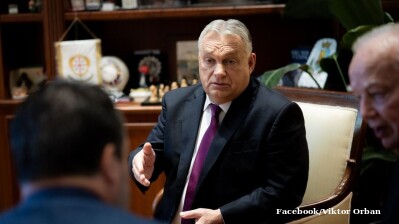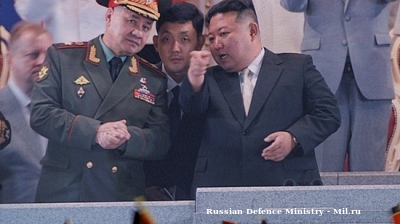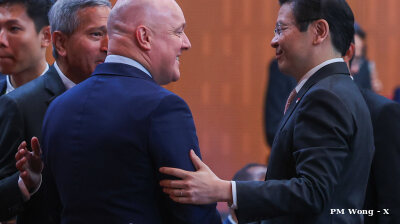Bosnia & Herzegovina is facing a surge of new coronavirus (COVID-19) cases but this will not stop the local elections that will be held on November 15 in all cities except the town of Mostar.
Analysts expect that the vote might bring some changes to the established leadership of the main ethnic parties in the country that have dominated politics for years.
The vote follows the 2018 general election, which deepened the political crisis in the poor Balkan state. Bosnian politicians were unable to agree on forming a coalition for 14 months. In December 2019, they finally found a suitable compromise and ethnic Serb politician Zoran Tegeltija was approved as the next state-level prime minister. In the Muslim-Croat Federation, a government is yet to be formed.
Bosnia consists of two autonomous entities, the Federation and the Serb-dominated Republika Srpska, and the autonomous Brcko district.
The local election was initially scheduled for October 4, but the central election body was forced to delay it due to the lack of financing. The allocation of funds for organising the vote was not possible until Bosnia’s state-level government finally adopted the 2020 budget at the end of July.
Fears of coronavirus infection are expected to make the November 15 vote more challenging than usual and observers have noted it might be difficult to administer. Despite that, 120 municipalities will hold the vote on November 15.
The city of Mostar will be allowed to vote for its local authorities for the first time in 12 years on December 20, despite objections by politicians that there was no administrative reason not to hold the vote on the same day as in the rest of Bosnia.
Mostar is the only municipality in Bosnia where no local elections have been held since 2008, amid a dispute between Bosniaks and Croats over the composition of the city council.
In 2012, the constitutional court declared the electoral statute of the city unconstitutional and ordered the election system to be changed. The decision was taken by the court due to complaints by Croats on the city council that the electoral system gave Bosniaks the same number of councillors even though Croats are the majority group in the city. Mostar's city council is currently elected from six voting units, each of them electing the same number of councillors regardless of the number of voters in the unit.
In July, Bosnia’s state-level parliament approved an agreement reached by the main Bosnian and Croat parties on the governing Mostar, allowing the local election to be held.
According to the International Institute for Middle East and Balkan Studies (IFIMES), the wave of political changes in neighbouring Montenegro following the August 30 general election affected Bosnia as well, primarily the Serb-dominated Republika Srpska. IFIMES noted that the political change in this entity began after the withdrawal of the Democratic People's Alliance (DNS) from the of parties led by President Milorad Dodik's Alliance of Independent Social Democrats (SNSD). The DNS says its political agenda will focus on issues in the interest of the people as opposed to what it said was the SNSD’s main goal of remaining in power.
On the other hand, the Socialist Party seems to be another possible alternative to the SNSD, which has removed people associated with Dodik from its ranks.
Although IFIMES claims that, according to its poll, the SNSD is set to lose the election in Banja Luka, the administrative centre of Republika Srpska, the SNSD seems to still be the leading party in Republika Srpska and it can hardly be beaten even if all opposition parties unite.
Meanwhile, one of its candidates, Aleksandar Brezar, chose an unusual way for campaigning – by having his name and photo plastered on painkillers.
In the Muslim-Croat Federation, the main Bosniak and Croat parties – the Party of Democratic Action (SDA) and HDZ BiH – are also expected to retain their leading positions.
Around 3.28mn people are eligible to vote in the November 15 election. 543 political entities will run in the election, including 129 parties and 262 independent candidates.
The Organisation for Security and Co-operation in Europe (OSCE) called on all political parties and candidates to uphold the principles of free and fair elections, show respect both for their competitors and for voters before, during and after the elections and accept officially-confirmed electoral results.
“We hope there will be no inflammatory rhetoric or provocative incidents on election day and we call for peaceful celebrations after the announcement of results,” it said in a statement on November 12.
At the same time, Transparency International presented its observations of the election campaign, saying it has registered numerous cases of abuse of state resources.
“Observers of TI BiH [Transparency International BiH] during less than three months have observed 2,481 cases of use of public resources for electoral promotion of parties and candidates,” it noted.
There were also 21 cases of state institutions promoting candidates, as well as 35 cases when people were given jobs in return for their votes.
News

European diplomacy should have stopped war, Orban tells Italian broadcaster
The job of European diplomacy would have been stopping the war in Ukraine, but Brussels has become "irrelevant" by deciding not to negotiate, Prime Minister Viktor Orban told an Italian TV channel on October 28.

Zelenskiy allows the start of controlled arms exports
President Volodymyr Zelenskiy ordered Ukraine’s Ministry of Defence to begin the controlled export of domestically produced weapons starting in November for the first time in the hope of boosting production and attracting investment.

North Korea fires cruise missiles to mark Trump's arrival in the South
State media framed the launch as a reminder of North Korea’s military strength to what it described as its enemies. The launch does not breach United Nations restrictions, since the rules prohibit ballistic missile testing, not cruise missiles.

Singapore PM Lawrence Wong heads to APEC in bid to deepen Seoul ties
The visit will be Wong’s first trip to South Korea since he assumed office in May 2024, and the first by a Singaporean prime minister since 2019 – in part to recognise the 50th anniversary of diplomatic relations between the two nations.




